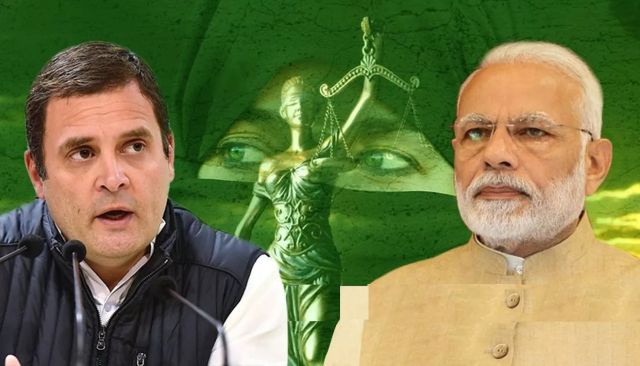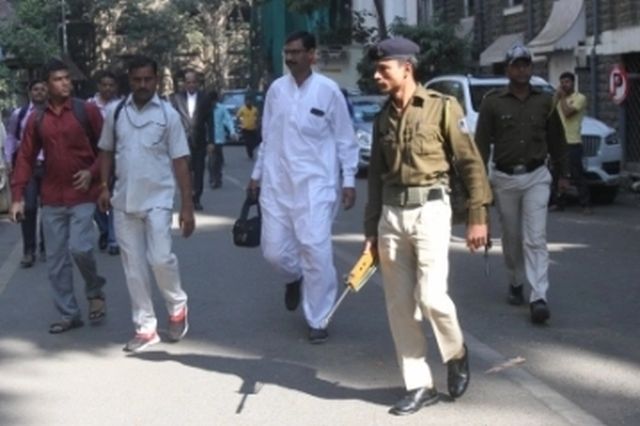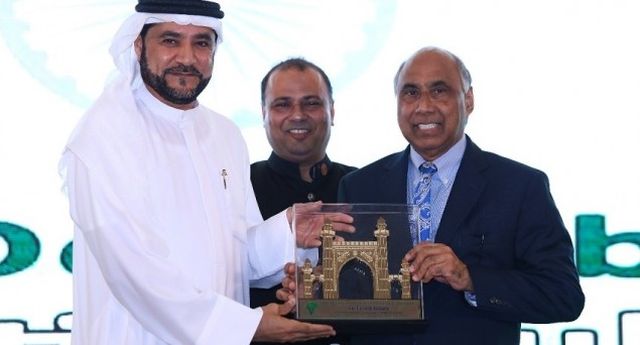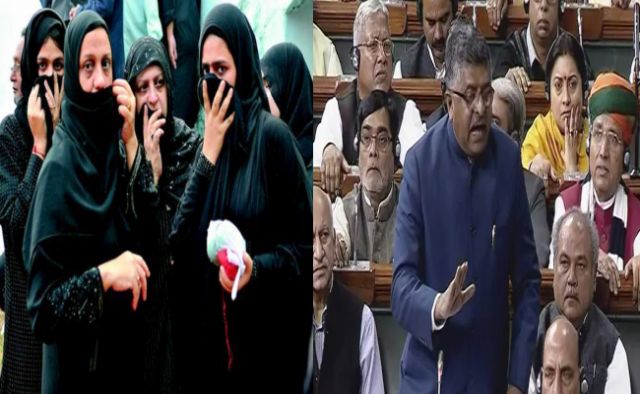
by admin | May 25, 2021 | News, Politics
 Srinagar : Former Jammu and Kashmir Chief Minister Mehbooba Mufti said on Monday that the Triple Talaq bill will create more problems for Muslim women as it will disturb the family structure among Muslims.
Srinagar : Former Jammu and Kashmir Chief Minister Mehbooba Mufti said on Monday that the Triple Talaq bill will create more problems for Muslim women as it will disturb the family structure among Muslims.
Addressing a press conference here, Mehbooba Mufti said that since she personally faced the problems of a broken marriage, she thought it important that she should speak up on the issue.
“Being a Muslim woman who has gone through a broken marriage, I thought I should speak up on the Triple Talaq bill.
“After separation from her husband, the biggest problem for the woman is to raise her children.
“By bringing in the Triple Talaq bill, the BJP is entering our homes. This will disturb our family life and there will be more problems for women and men economically.
“I have gone through a broken marriage and I feel that women face the biggest challenge economically after her marriage fails.”
Mehbooba Mufti accused the BJP of dividing India on religious and sectarian lines.
“The bill is the second assault on Muslims after the financial onslaught against them through bans on mutton and leather industries.
“When we talk about reservations for Muslims, the BJP rejects it on religious lines. But when it comes to this kind of law, they run to Parliament,” she said.
She called for a consensus on the issue adding that Muslims always abide by the law.
—IANS

by admin | May 25, 2021 | Opinions

Representational Image (google image)
By Amulya Ganguli,
The day before the Bharatiya Janata Party (BJP) waxed eloquent on the triple talaq bill in parliament, saffron bullies confronted a group of Muslims offering namaz (prayers) at a park in Noida, UP.
The attitude of the storm-troopers was both mocking and threatening. Today you are offering namaz, tomorrow you will build a mosque here, they said jeeringly to the obviously intimidated Muslims.
The BJP’s television warriors supported the saffronites during a debate on the subject, arguing that permission has to be taken before “occupying” a public place.
Where the BJP and the Sangh parivar are concerned, there is no question of showering petals from helicopters on the namazis as was done in UP on the kanwariyas or the worshippers of Lord Shiva as they marched along the roads and highways with or without formal permission.
These contrasting attitudes of the party in power at the centre towards Hindu and Muslim devotees – lenience towards the former and sternness towards the Muslims – do not conform to the BJP’s outpouring of concern for the Muslim women who may be victims of the admittedly ludicrous and abhorrent practice of Muslim men summarily divorcing their wives on flimsy grounds.
If the BJP is genuinely concerned about the welfare of Muslim women, its feelings of benevolence and sympathy should be reflected in its attitude towards the entire community and not only towards a particular section.
Since this isn’t the case as the vituperation directed at Muslims by the trolls shows, along with the advice of saffron stalwarts like Vinay Katiyar who want the Muslims to leave India for Pakistan or Bangladesh, or the urging of a BJP MP to dig up the Jama Masjid to uncover the hidden temples, the suspicion wiill be that the BJP’s focus on the triple talaq issue is guided more by political than humane, gender-based considerations.
The party’s calculation apparently is that since the Muslims as a whole are unlikely to vote for it in view of the parivar’s nine-decade-long preference for a Hindu rashtra, it can be politically useful to wean away at least some of the women.
Another objective of the party is to offer a Hobson’s choice to its opponents where opposing the bill will depict them as anti-women while supporting it will mean meekly endorsing their adversary, the BJP’s stance, much to its delight.
For the present, sections of the opposition evaded the trap by walking out of the Lok Sabha before the voting took place. But the issue will come up again in the Rajya Sabha where a clear-cut stance will have to be taken.
As of now, the opposition wants the bill to be sent to a joint select committee since some of the provisions need to be modified, especially the one relating to criminalising the “offence” of divorcing the wife.
Undoubtedly, this is the sticking point, for it is absurd to criminally prosecute a man for a divorce even if his act is whimsical and has no sanction even in other Muslim countries. For such a practice to be prevalent only in India brings no glory to the Muslims.
Ideally, the “reform” in this respect should have come from within the community. However, since the organisations which claim to look after the Muslim interests in India had taken no interest in the matter all these years, it had to be left to the Supreme Court to ban the practice of triple talaq although it did not call for a law.
If the BJP has favoured the legal process, it is for two reasons – both political. One is to look for votes by championing the cause of women’s empowerment, and the other is to send a message to the Muslims (and other minorities) that the present government will not hesitate – unlike its “secular” predecessors – to legislate in matters which fall within the purview of their personal laws even if the triple talaq issue is little short of an outrage which should have been ended long ago.
If the “secular” governments had been hesitant in this regard, the reason undoubtedly was that they were unwilling to interfere in the affairs of a community which suffered from a guilt complex for having caused the country’s partition – a “sin” for which they were accused of being unpatriotic, especially by the Hindu Right.
However, now that a Hindu nationalist government has done what the Left-Liberals were reluctant to do, the latter can rectify some of their earlier lapses such as overturning the Supreme Court judgment in the Shah Bano case on maintenance for divorced women and help in fine-tuning the triple talaq legislation in a manner which will make it acceptable to the political class as a whole.
The BJP’s defeats in the Karnataka, Rajasthan, Madhya Pradesh and Chhattisgarh elections have shown that the triple talaq issue hasn’t been of much help to the party. If it has now rushed through the bill in the Lok Sabha, it is perhaps with the general election in mind.
However, the endeavour of all parties should be to keep the matter as far above politics as possible and ensure that the new law does not penalise either men or the women or the children of divorced parents.
(Amulya Ganguli is a political analyst. He can be reached at amulyaganguli@gmail.com)
—IANS

by admin | May 25, 2021 | News, Politics
 Mumbai : The entire CBI investigation in the politically sensitive Sohrabuddin Shaikh-Tulsiram Prajapati and Kausar Bi’s alleged encounter killings case was targeted “to act upon a script” and “anyhow implicate political leaders”, the case judgement delivered on December 21, and made available on Friday, said.
Mumbai : The entire CBI investigation in the politically sensitive Sohrabuddin Shaikh-Tulsiram Prajapati and Kausar Bi’s alleged encounter killings case was targeted “to act upon a script” and “anyhow implicate political leaders”, the case judgement delivered on December 21, and made available on Friday, said.
“The entire investigation was thus targeted to act upon a script to achieve the said goal and in the process of its zeal to anyhow implicate political leaders, anyhow the CBI created the evidence and placed statements purported to have been recorded under Sec.161 or Sec. 164 of the Cr.PC of witnesses in the chargesheet,” said Special CBI Judge S.J. Sharma in a strong indictment of the CBI.
“It clearly appears that the CBI was more concerned in establishing a particular preconceived and premeditated theory, rather than finding out the truth,” said Special Judge Sharma.
The verdict delivered last week acquitted all 22 remaining accused, including 21 policemen from Gujarat, Rajasthan and Andhra Pradesh, drawing curtains on the 12-year-old high-profile case.
Mauling the CBI, the judgement said the statements of the witnesses were wrongly recorded as part of the probe, “I have no hesitation in recording that during the investigation of these offences, the CBI was doing something other than reaching the trutha”
He said that the “premier investigating agency like CBI” pursued its theory and a script to somehow implicate political leaders, and “thereafter, did what was required to reach that goal, rather than conducting an investigation in accordance with law.”
In his final order, the Special Judge said that when he referred to witnesses having ‘turned hostile’, it meant that they didn’t depose as per their respective statements recorded by the CBI.
“However, I had the occasion of seeing the deposition of the witnesses while they were in the witness box in this court which clearly reflected that they were speaking the truth before this court,” Special Judge Sharma said.
In this context, the Special Judge referred to his predecessor (ex-Special Judge M.B. Gosavi), who while giving a discharge to the accused No. 16 (referring to Bharatiya Janata Party President Amit Shah) “clearly recorded that the investigation was politically motivated.”
“It is no doubt a matter of regret that there is a reported killing of Sohrabuddin and Tulsiram and it is going unpunished. As also Kausar Bi (wife of Sohrabuddin) disappeared and the script of the CBI that she was killed and set ablaze is lacking in evidence, and (it) is also going unpunished.”
However, merely for the sake of record, the accused cannot be punished holding them guilty on moral or suspicion grounds and “I have therefore no options but to conclude that the accused are not guilty and are to be acquitted,” ruled Special Judge Sharma, in his last major judgement before retirement this month.
Special Judge Sharma noted that the (witnesses’) statements would not withstand the judicial scrutiny of the court and the witnesses whose statements were purportedly recorded (by CBI), “deposed fearlessly before the court”, clearly indicating that the earlier purported versions were wrongly recorded by CBI to justify its script to implicate politicians.
He also noted the “negligence of the CBI” towards the material parts of the probe, which clearly indicated that “they hurriedly completed the investigation” by using replica of the earlier recorded probe and implicated police personnel who had no knowledge of any conspiracy at all, “rather they appeared innocent.”
There were a total of 38 accused in the Sohrabuddin and Prajapati alleged fake encounter cases of 2005 and 2006, besides Kasuar Bi’s disappearance, rape and murder in 2005.
Among them, 15 accused including politicians like Shah and senior IPS officers, were discharged by the Special Court, Mumbai in Dec. 2014, one accused discharged later by Bombay High Court and the remaining 22 were acquitted last week.
—IANS

by admin | May 25, 2021 | Business Summit, Events, Muslim World, Social Round-up

Indian-American businessman Frank F. Islam (R) conferred Sir Syed Global Excellence and Leadership Award 2018 in Dubai on Dec 22, 2018.
By Mumtaz Alam,
Dubai/New Delhi: India’s former Vice President Hamid Ansari and renowned Indian-American businessman and philanthropist Frank Islam were conferred with the first Sir Syed Global Excellence & Leadership Awards here on Saturday. Both are alumni of India’s prestigious Aligarh Muslim University.
While Hamid Ansari, who was Vice President of India for 10 years after serving as Vice Chancellor of AMU and chairperson of National Minorities Commission, received the award in the category of administration excellence, Frank Islam got the Sir Syed Global Philanthropist Excellence Award. Frank had recently donated $2 million to his alma mater AMU for a new complex for business and management studies.
Besides the two, 15 other eminent alumni of AMU were also honoured with the award in different categories. They include Tariq Chauhan, Group CEO of EFS Facilities Services Group, filmmaker Anubhav Sinha and journalist Rifat Jawaid. Ten of the 17 winners reside in UAE. All the winners are AMU alumni. The award was named after the university’s founder Sir Syed Ahmed Khan. The lifetime achievement award went to AMU chancellor Syedna Mufaddal Saifuddin.
Speaking on the occasion, Frank Islam recognized the role of AMU in making him what he is.
“It is an honor because I come before you as a son of Aligarh and a brother to each of you. Like you I am part of the Aligarh family tree. I am here this evening because I have stood on the shoulders of giants. These giants have been the faculty, students, and the alumni of Aligarh Muslim University,” he said.
He described Sir Syed as his hero.
“I am honored to receive the Sir Syed Global Philanthropist Excellence Award for 2018. Sir Syed Ahmed Khan is my hero. He was one of the greatest leaders in the history of AMU. We have been enriched and empowered by Sir Syed’s educational initiatives. I accept this award with humility, not for me, but in recognition of all those Aligarh giants, who have made a difference in society through their leadership, education, and public service.”
“To be given any award named after Sir Syed is special. To be given an award that relates to philanthropy is even more so because it relates directly to the vision that Sir Syed had when he founded Aligarh Muslim University in 1875,” he added.
Early in his speech, Frank praised Hamid Ansari for his strong belief in “building the most diverse, inclusive, and fair vision of India.”
“I want to thank him (Hamid Ansari) for being the guiding light and for helping and advocating to create a unified and just environment where people of different creeds and different faiths can all work together to help shape a better future for India and the world. I admire and respect his strong belief in embracing hope over fears and in building the most diverse, inclusive, and fair vision of India. His firm belief that we cannot be pulled apart and we need to stand together and we need to build bridges and to promote dialogue of understanding and a shared sense of community because we are Indian, bonds that binds us together,” said Frank.
He also highlighted the significance of purposeful philanthropy.
“Philanthropy takes many forms. The philanthropy that is of pivotal importance, in my opinion, is purposeful philanthropy. Purposeful philanthropy is making investments directed at creating a difference in pivot point areas that matter to the future of society. The returns on those investments are changes to problematic conditions and/or the creation of individuals who will become change agents to address those conditions,” said Frank.
About the idea behind the awards, Pushkin Agha, managing director of Vertex Events, which organized the awards, was quoted as saying by Gulf News: “This is the first event held to recognise AMU alumni who have excelled in their field. Leading establishments such as Forbes and Harvard University have awards for their alumni. AMU is a prestigious institution that is almost 100 years old, our alumni are spread around the world. So this event will bring them together and recognise their achievements on an international platform.”
At the Dubai event, special guests included AMU Vice-Chancellor Professor Tariq Mansoor and former AMU vice chancellor Zameeruddin Shah.
(Source: India Tomorrow)

by admin | May 25, 2021 | Opinions
 By M. Burhanuddin Qasmi,
By M. Burhanuddin Qasmi,
There is no disappointment if the Anti Talaq Bill is passed in the Lok Sabha today (27 Dec. 2018). The outcome was expected as the ruling party has absolute majority in the lower house of Indian Parliament and to display its muscle power the government would by all means pass this Bill.
However, to me, the take aways from today’s debate in the Parliament are:
(1). The whole opposition has clearly opposed this Bill and demanded it is to be sent to Select Committee.
(2). Some opposition speakers have spoken very well against the motion while participating in the debate.
(3). There was some clarity in the opposition as what it has been opposing and why unlike the earlier debate on the same Bill in the same Lok Sabha.
(4) The standard of debate today in the Parliament was high and content came out was important and educative for many.
(5). A few members of the AIMPLB have done hardwork last week and met important opposition leaders from West Bengal to Hyderabad which had partly paid positively.
(6). On the other hand, some speakers from the opposition were lacking in counter arguments, statistics and in putting their views across as how this new Bill is useless, communal and against basic tenets of Indian constitution and Islam.
(6). The opposition failed to state that this Bill is against all Muslims denominations including Shia sect and Salfi school, and plainly against Islam. Among Muslims across the world, the debate on Triple Talaq, has always been, if instant Triple Talaq is three or one effective. The Bill made it completely null and void which is against Qur’an thus against fundamental rights of a minority group and against basic principle of our constitution.
(7). The entire opposition also failed to strongly question the government as how a ‘no-crime’ becomes ‘crime’. Talaq, Talaq, Talaq is meaningless according to this Bill as well as according to the Supreme Court order in 2017. How mere utterance of a meaningless word does become a crime?
(8). The opposition also failed to ask the government about a precise and concise definition of Talaq-e Bida’t.
(9). The opposition could not clarify that this Bill is against Muslim women because it is taking away their rights of Khula (Talaq from wife’s side), guaranteed by their religion – Islam.
(10). The lack of a planned and unity-effort from the larger opposition was clearly visible. They were opposing but without a unanimous tune.
Will this Bill pass in RS?
I am not sure. I am, rather confident that this Bill can be stopped in Rajya Sabha subject to seriousness from the opposition and more preparation from All India Muslim Personal Law Board. It is time for the Board to find out who the speakers will be in the upper house when the Bill is presented there – in Rajya Sabha and brief them with concrete evidence and rational arguments that this Bill itself is utterly against both constitution and women. It is biased against male members of a particular community and a destructve instrument for family life. It is unjust and inhuman.
In a democracy number is important. The Board has already gathered authentic data where 90 percent Muslim women are against this Bill. This information needs to be put by the opposition before the highest legislative house of India. The Board needs to walk to the doors of all opposition parties who have strengths in Rajya Sabha like SP, BSP, AIADMK, DMK along with Congress, TMC, TDP and TRS.
(Author is editor of Eastern Crescent and based in Mumbai.)

 Srinagar : Former Jammu and Kashmir Chief Minister Mehbooba Mufti said on Monday that the Triple Talaq bill will create more problems for Muslim women as it will disturb the family structure among Muslims.
Srinagar : Former Jammu and Kashmir Chief Minister Mehbooba Mufti said on Monday that the Triple Talaq bill will create more problems for Muslim women as it will disturb the family structure among Muslims.



